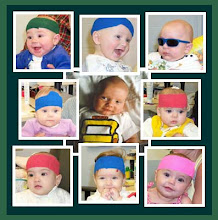
DR WIDODO JUDARWANTO
Working together make a smoke-free homes and smoke-free zones for all children
Yudhasmara Foundation
JL TAMAN BENDUNGAN ASAHAN 5 JAKARTA PUSAT, JAKARTA INDONESIA 10210
PHONE : (021) 70081995 – 5703646
email : cfc2006@hotmail.com, judarwanto@gmail.com
www.savechildfromsmokers.blogspot.com/
On September 18, 2007, the Surgeon General reemphasized that secondhand smoke causes premature death and disease in children and that US children are more heavily exposed to secondhand smoke than nonsmoking adults. The 2006 Surgeon General's report noted that 60 percent of US children aged 3-11 years—nearly 22 million young people—are exposed to secondhand smoke.
Surgeon General Moritsugu joined with the American Academy of Pediatrics, the Environmental Protection Agency, and the Administration for Children and Families on September 18, 2007 to encourage parents, friends, family, healthcare providers, teachers, caregivers, and public health and community organizations to safeguard children immediately from the threat of secondhand smoke. The Surgeon General also released Children and Secondhand Smoke Exposure, an excerpt from the 2006 Surgeon General's Report on The Health Consequences of Involuntary Exposure to Tobacco Smoke. The excerpt summarizes key scientific evidence on the serious health risks that secondhand smoke poses to children and serves as the anchor for intensified action on the issue.
According to the Surgeon General:
- Because their bodies are developing, infants and young children are especially vulnerable to the poisons in secondhand smoke.
- Both babies whose mothers smoke while pregnant and babies who are exposed to secondhand smoke after birth are more likely to die from sudden infant death syndrome (SIDS) than babies who are not exposed to cigarette smoke.
- Mothers who are exposed to secondhand smoke while pregnant are more likely to have lower birth weight babies, which makes babies weaker and increases the risk for many health problems.
- Babies whose mothers smoke while pregnant or who are exposed to secondhand smoke after birth have weaker lungs than other babies, which increases the risk for many health problems.
- Secondhand smoke exposure causes acute lower respiratory infections such as bronchitis and pneumonia in infants and young children.
- Secondhand smoke exposure causes children who already have asthma to experience more frequent and severe attacks.
- Secondhand smoke exposure causes respiratory symptoms, including cough, phlegm, wheeze, and breathlessness, among school-aged children.
- Children exposed to secondhand smoke are at increased risk for ear infections and are more likely to need an operation to insert ear tubes for drainage.
- Children aged 3-11 years have cotinine levels (a biological marker for secondhand smoke exposure) more than twice as high as nonsmoking adults.
- Children who live in homes where smoking is allowed have higher cotinine levels than children who live in homes where smoking is not allowed.
The Surgeon General also concluded that there is no safe level of secondhand smoke exposure and eliminating smoking in indoor spaces is the only way to fully protect children from exposure to secondhand smoke. A primary source of children's secondhand smoke exposure is in their homes and vehicles. Secondhand smoke permeates the entire house and lingers long after the cigarette has been extinguished, so smoking in certain rooms, at certain times, or by a window or fan is not safe.
What You Can Do To Protect Kids from Secondhand Smoke
Sadly, children are powerless to protect themselves from the dangers of secondhand smoke. But we each can play an important role in protecting them from secondhand smoke exposure.
- Make your home and vehicle smoke-free at all times. If there are smokers in your family, they should always go outside to smoke. Opening a window is not enough.
- Make sure your children's day care centers and schools are 100% smoke- and tobacco-free.
- Insist that no one smokes around your children.
- Choose smoke-free restaurants.
And the single best step you can take to protect your family's health and your own is to quit smoking. Quitting smoking will also reduce the chance that your children will grow up to become smokers themselves.
While quitting smoking may be difficult, there are a number of proven resources available to help including free counseling and a range of FDA-approved medications.
Information and Resources
- Smoking and Tobacco Use
- Smoke-Free Policies Improve Air Quality and Reduce Secondhand Smoke Exposure, factsheet
- Children and Secondhand Smoke Exposure (US Department of Health and Human Services) ( 746 KB; 109 pages)
- 2006 Surgeon General's Report: The Health Consequences of Involuntary Exposure to Tobacco Smoke

















Tidak ada komentar:
Posting Komentar